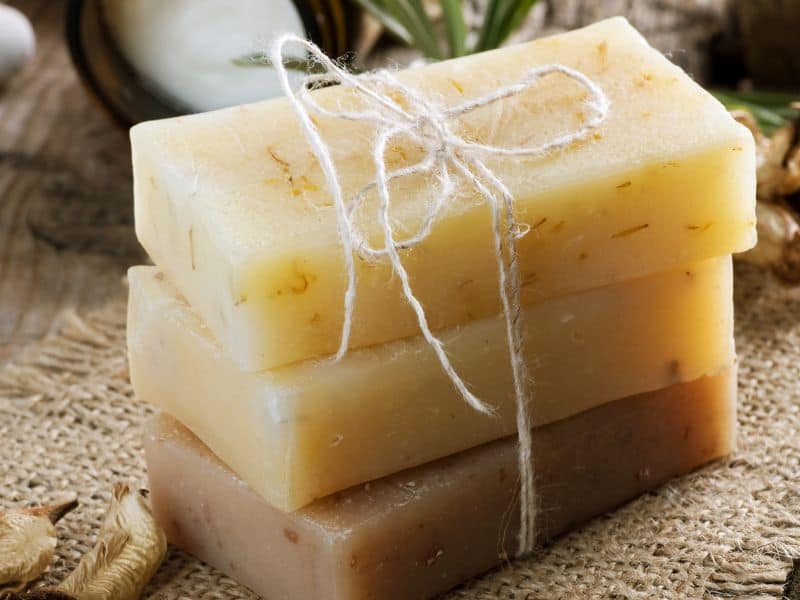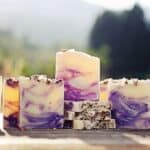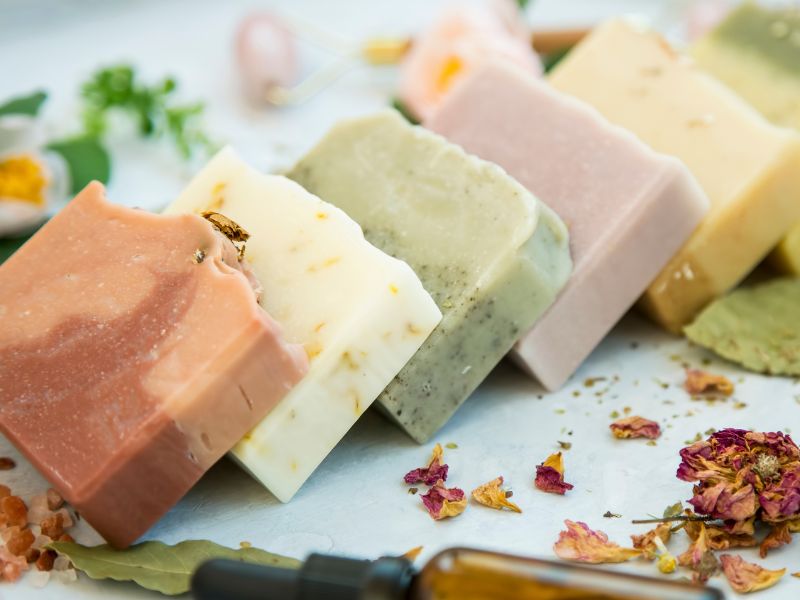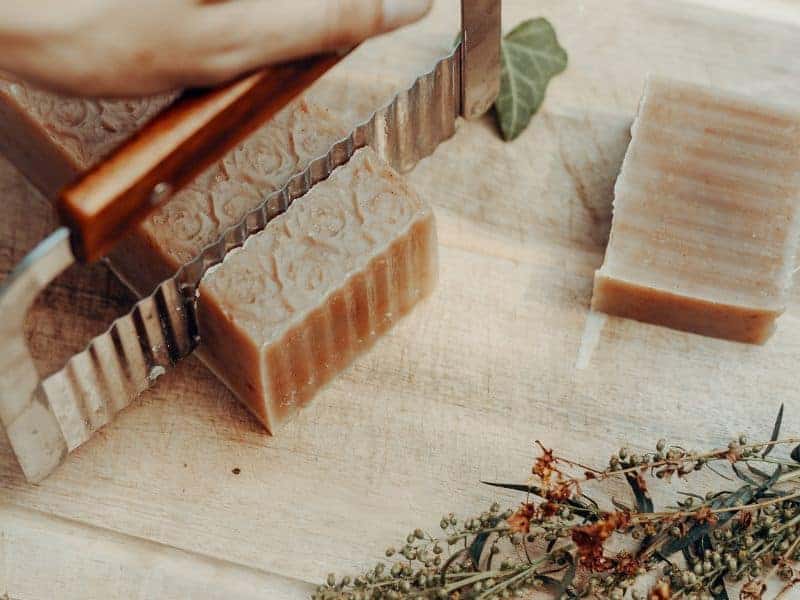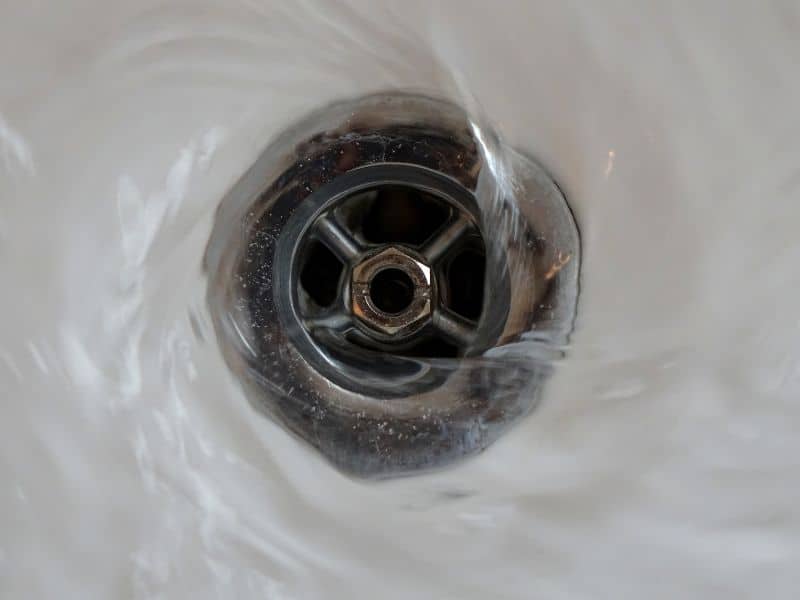Are you tired of the harsh synthetic ingredients found in many commercial soaps? If you’re searching for a natural, gentle, and eco-friendly alternative, look no further than cold process soap. This traditional soap-making method offers numerous benefits for your skin.
Cold process soap is good for the skin. It has gentle moisturizing properties, made from natural ingredients, making it an excellent choice for sensitive, dry, or combination skin types. Cold process soap helps maintain healthy skin while avoiding harsh chemicals found in many commercial soaps.
If you’re seeking a soap that cares for your skin and the environment, cold process soap is a fantastic option. Cold process soap is handcrafted soap that often features sustainable and ethically-sourced ingredients, letting you know what you are putting on your body.
Additionally, they come in various scents and colors, allowing you to find the perfect match for your preferences. Let’s look at some of the additional benefits of cold process soap.
Cold Process Soap Benefits For Skin
Gentle on Skin
Cold process soap is incredibly gentle on the skin. Its natural ingredients, such as oils and lye, ensure that it doesn’t strip away essential oils or cause irritation.
This makes it perfect for those with sensitive skin or skin conditions like eczema.
Moisturizing Properties
One of the standout benefits of cold process soap is its moisturizing properties. The natural oils and fats in the soap help lock in moisture, leaving your skin feeling soft and hydrated.
This can be especially helpful during colder months when the skin tends to dry out.
Creamy Lather and Feel
Cold process soap has a rich, creamy lather that feels luxurious on the skin. The natural ingredients create a smooth texture that makes for a satisfying cleansing experience.
It helps to remove dirt and impurities without leaving your skin feeling tight or dry.
Customizable Scents and Colors
Cold process soap offers endless possibilities for customization.
Soap makers can create unique scents and colors by using all-natural ingredients that are not harsh on the skin by adding essential oils, herbs, and natural colorants.
This means you can find a soap that suits your preferences, whether you enjoy floral, earthy, or fruity scents.
Cold Process Ethical and Eco-Friendly Benefits
With cold process soap, you can be confident in the ingredients used. Artisans often share the specific oils, lye, and other natural components that make up their soap.
Cold process soap is eco-friendly and natural because it can use sustainable, ethically-sourced ingredients and minimal packaging. Unlike commercial soap, it’s free of harsh chemicals and synthetic additives, making it gentler on both the skin and the environment.
This transparency allows you to make informed choices about the products you use on your skin.
Cold process soap is made from natural and sustainable ingredients, such as plant-based oils and essential oils. These eco-friendly components are often sourced from local suppliers or grown using responsible farming practices.
This helps to minimize the environmental impact of your skincare routine.
In addition to using sustainable ingredients, cold process soap often comes in minimal, recyclable, or biodegradable packaging. This reduces waste and plastic consumption compared to many commercial soaps that use non-recyclable plastic packaging.
By choosing cold process soap, you’re making a positive impact on the environment.
Cold Process Soap Comparison with Other Soaps
Cold process vs. Hot process
Cold process soap and hot process soap both use natural ingredients, but they differ in their production methods.
Cold process soap is made by combining oils and lye at room temperature, while hot process soap involves heating the mixture.
Cold process soaps often have a smoother, more natural appearance, and they require a longer curing time (4-6 weeks) compared to hot process soaps (1-2 weeks).
Cold process vs. Melt and pour
Melt and pour soap is a pre-made soap base that you can customize by adding scents and colors.
While it’s convenient and easy to use, it often contains synthetic ingredients, such as detergents and preservatives, which some people prefer to avoid.
Cold process soap offers a more natural alternative and allows for greater control over the ingredients.
Cold process vs. Commercial soaps
Commercial soaps are mass-produced and often contain synthetic detergents, fragrances, and preservatives.
These ingredients can be harsh on the skin and contribute to dryness and irritation. Cold process soap, on the other hand, uses natural ingredients that are gentler and better for your skin’s overall health.
Suitable Skin Types
Sensitive Skin
Cold process soap is an excellent choice for those with sensitive skin. Its gentle, natural ingredients help to maintain your skin’s natural balance without causing irritation.
The absence of harsh chemicals and synthetic additives makes it a perfect choice for people prone to redness, itching, or inflammation.
Dry Skin
If you have dry skin, cold process soap can provide the moisture and nourishment it needs. The natural oils and fats in the soap help to lock in moisture, keeping your skin soft and hydrated.
This makes it an ideal alternative to commercial soaps that can strip away essential oils and lead to dry, uncomfortable skin.
Combination Skin
For those with combination skin, finding a soap that works well can be challenging. Cold process soap is a great option, as its natural ingredients help balance oil production without over-drying.
This ensures that your skin remains moisturized and healthy, regardless of whether it’s oily in some areas and dry in others.
How to Choose the Right Cold Process Soap
Consider Ingredients
When selecting a cold process soap, it’s essential to examine the ingredients list. Look for natural components like plant-based oils, essential oils, and natural colorants.
If you have specific preferences or allergies, make sure the soap doesn’t contain any ingredients you want to avoid.
High-quality ingredients can make a significant difference in the soap’s effectiveness and how it feels on your skin.
Look for Skin Type-Specific Formulas
Cold process soaps come in a variety of formulations designed to cater to specific skin types. For example, if you have sensitive skin, you may want to choose a soap with soothing ingredients like chamomile or lavender.
If your skin is dry, opt for a soap with extra moisturizing properties, such as shea butter or olive oil. By selecting a soap tailored to your skin type, you’ll get the most benefits and improve your overall skincare routine.
Seek Out Reputable Suppliers
When purchasing cold process soap, it’s crucial to find reputable suppliers or artisans who prioritize quality and transparency. Read customer reviews and research the brand’s history and values.
A trustworthy supplier will be transparent about their ingredients and production methods, ensuring that you receive a high-quality product.
By supporting reputable artisans, you’re also investing in ethical and eco-friendly practices, contributing to a healthier planet and better skincare.
Frequently Asked Questions
Cold process soap is made by combining oils and lye at room temperature, while hot process soap involves heating the mixture. Cold process soaps often have a smoother appearance and require a longer curing time (4-6 weeks) compared to hot process soaps (1-2 weeks).
Yes, cold process soap is gentle on sensitive skin due to its natural ingredients and lack of harsh chemicals, making it an excellent choice for those with skin conditions like eczema or general sensitivity.
Yes, cold process soap can be used on the face. However, it’s essential to choose a soap formulated for facial skin, as it tends to be more delicate.
Yes, you can make cold process soap at home, but it requires care and attention to safety precautions due to the use of lye, a caustic substance.
Cold process soap produces a rich, creamy lather that feels luxurious on the skin, effectively cleansing without causing dryness.
Cold process soap can be purchased from local artisans, craft fairs, farmers’ markets, specialty stores, or online shops specializing in handmade, natural skincare products.
Conclusion
In conclusion, cold process soap offers numerous benefits for your skin and is a natural, gentle, and eco-friendly alternative to commercial soaps. With its moisturizing properties, soothing ingredients, and customizable scents, it’s a perfect choice for all skin types. By choosing cold process soap, you’re also supporting ethical and sustainable practices, making a positive impact on the environment.
So, if you’re ready to elevate your skincare routine and embrace a more wholesome approach, give cold process soap a try and experience the difference it can make for your skin and the world around you.

